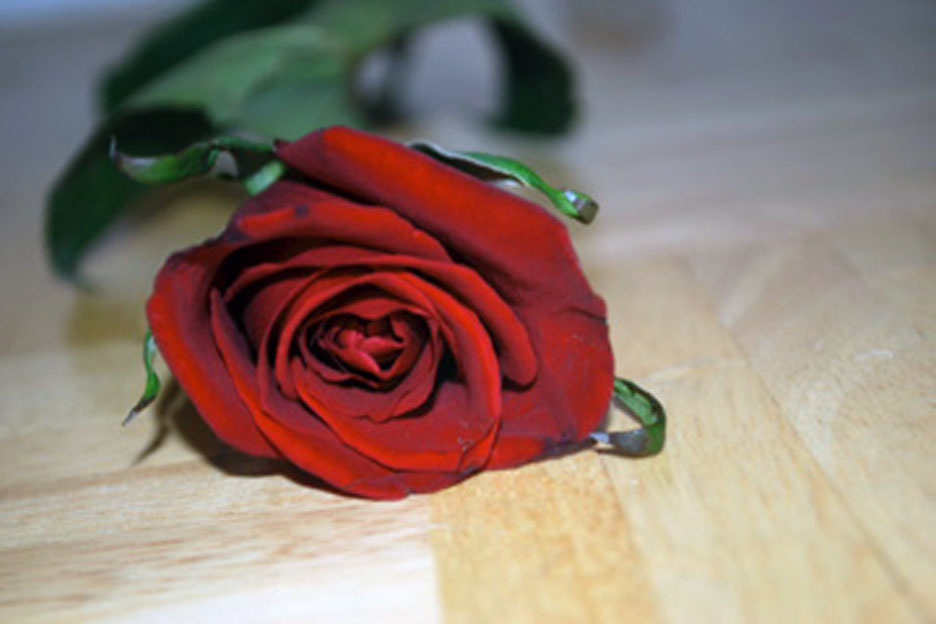Relating
June 13, 2011

Published: February 26, 2009
I didn’t think white clapboard buildings existed anymore, but one looms ahead. My GPS says turn left, as if there were anywhere else to turn in this po-dunk town. I pull the SUV into a makeshift parking lot next to the small building. The red dirt of the lot blows against the wall of the funeral home. It looks like a blood splatter, but I notice this only in passing. I’m much more concerned about my black pumps getting dirty. As the dirt gives way to damp, green grass, I try to polish my shoes against the blades as I walk across the lawn. By the time I climb the single step leading to the porch, my heels glisten.
I adjust my skirt and step through the narrow doorway. The darkness trips me, while the reek of roses tries to choke me. I blink and floating heads appear. The heads are leaking, with detached hands trying to stop the flow with crunchy tissues.
One of the hands touches my shoulder. I audibly yelp and all of the leaky eyes squint at me. I mutter an apology and turn to see his sister. We make eye contact and she begins to sob. Suddenly, I’m engulfed in the loose black fabric encasing her arms. My head is clutched to her shoulder and we both shake with the force of her grief.
Another hand taps my back. I pull away from my aunt and spin around. He’s waiting for me. Patting me on the shoulder, he awkwardly asks how I am. I laugh. Everyone looks at me again. I apologize, again and walk away from him. He was his best friend.
I clack my way to the front of the room. My shoes are like bullets, ricocheting around the small room. I don’t know why only my shoes seem to make noise and I don’t give a damn. Everyone’s attention is already on me. At least now they have a way to keep track of me in the darkness.
The roses are everywhere and this close, the smell is overpowering. I breathe through my mouth to avoid inhaling the disgustingly sweet stink of the flowers. He hated roses. He hated all flowers. He thought it was a waste of money to buy something pretty just to watch it die.
I grasp the closest arrangement and pull them out of their vase. I tuck them around his head, the thorns biting me as I do so. When I’m done, and his head is nestled in the flowers, I pat his face. It leaves a smear of blood trailing down his face, like a tear. Appropriate, I think. I chuckle and turn to face the room.
Clearing my throat, I motion for everyone to take a seat in the pews. I walk to the podium, stepping on glass. I realize it’s the vase I tossed aside. As I continue toward the podium, I aim for the larger pieces. The crunch is satisfying.
I grasp the sides of the podium and look up. They’re waiting for me to say something, but I don’t think they want to hear what I have to say. They want me to say he was a good father, husband, worker, man. They want me to tie a ribbon around his life and package it away.
I open my mouth and hesitate. The little wounds in my hands are bleeding badly. I look at them and see that they look like the wall outside, covered in red dirt. I won’t lie anymore.
I smile at the people that made up his life, shake my head and step down. Escaping the forced support and understanding, I push the door open, leaving a perfect handprint on it. I mush my hand around—nothing should look perfect. Nothing ever is.











